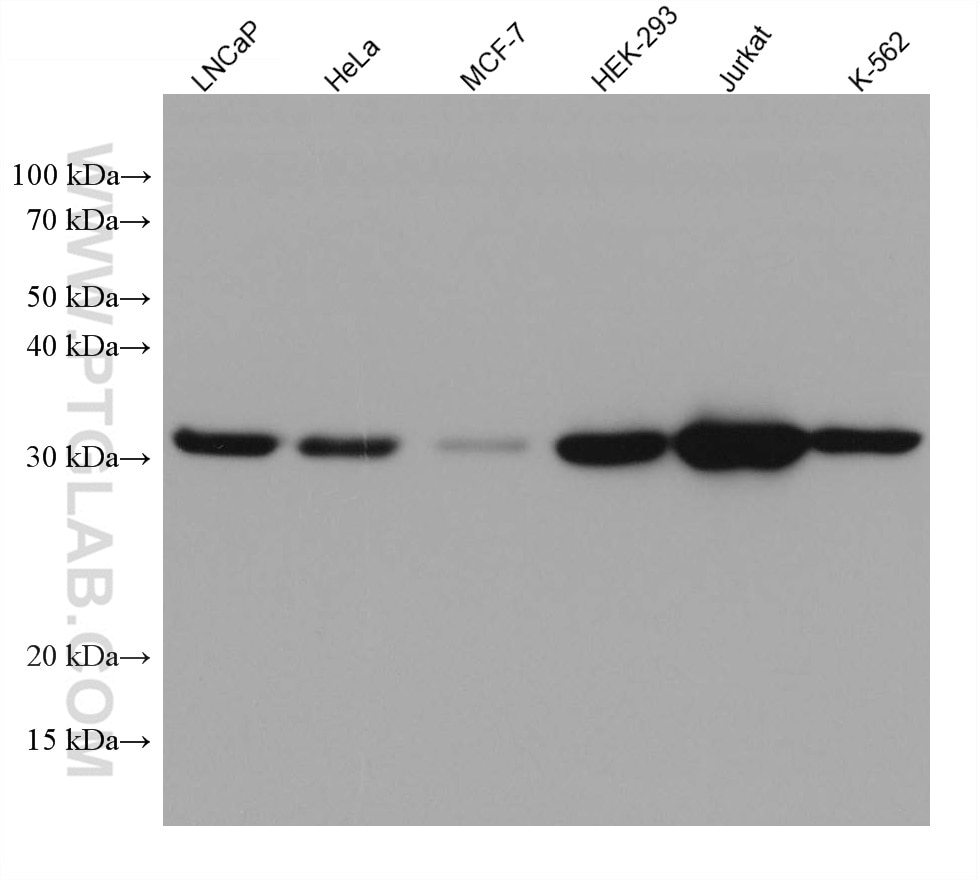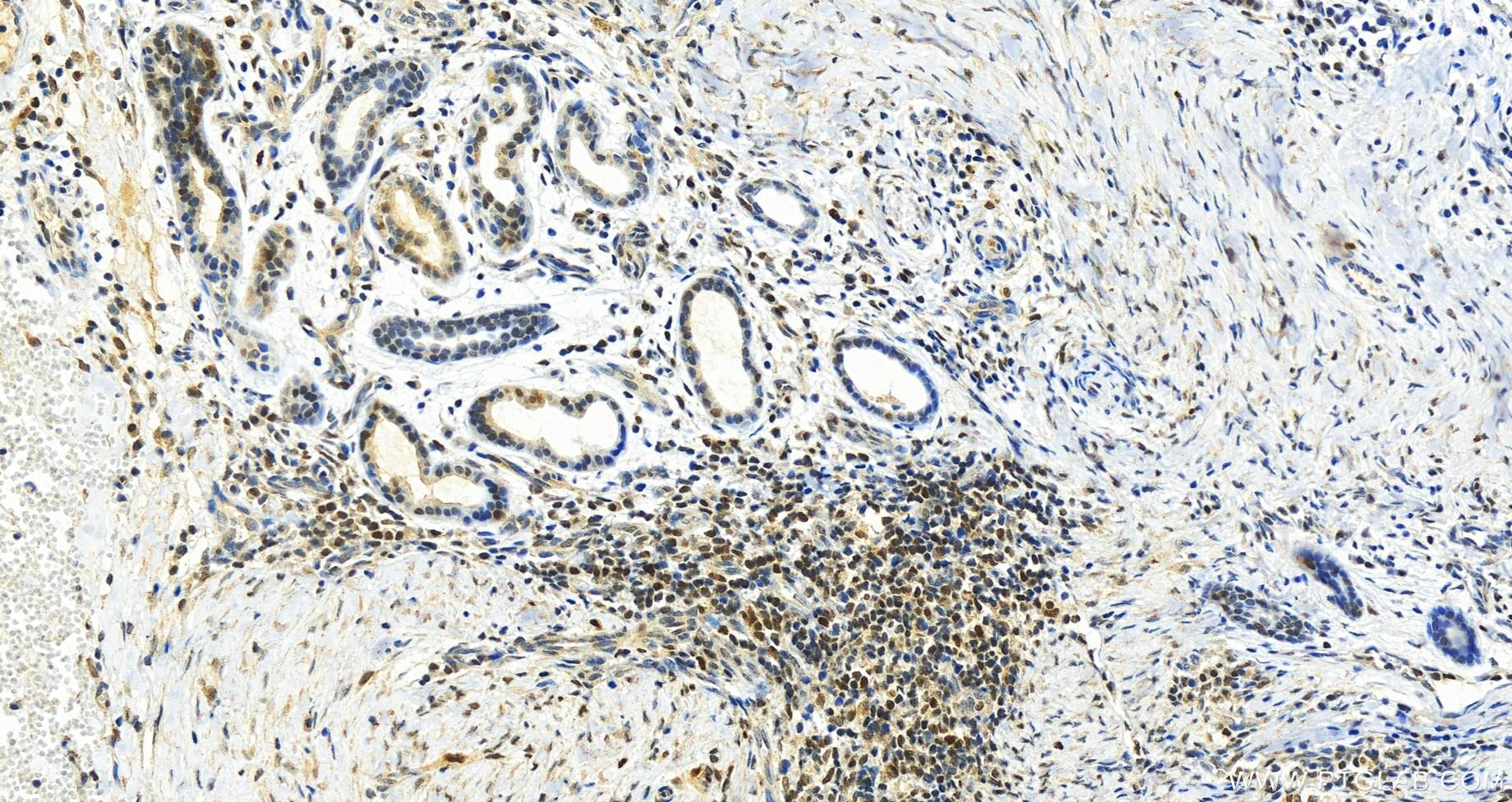Tested Applications
| Positive WB detected in | LNCaP cells, Hela cells, MCF-7 cells, HEK-293 cells, Jurkat cells, K-562 cells |
| Positive IHC detected in | human skin cancer tissue Note: suggested antigen retrieval with TE buffer pH 9.0; (*) Alternatively, antigen retrieval may be performed with citrate buffer pH 6.0 |
Recommended dilution
| Application | Dilution |
|---|---|
| Western Blot (WB) | WB : 1:2000-1:10000 |
| Immunohistochemistry (IHC) | IHC : 1:500-1:2000 |
| It is recommended that this reagent should be titrated in each testing system to obtain optimal results. | |
| Sample-dependent, Check data in validation data gallery. | |
Product Information
67976-1-Ig targets RNASEH2A in WB, IHC, ELISA applications and shows reactivity with human samples.
| Tested Reactivity | human |
| Host / Isotype | Mouse / IgG2a |
| Class | Monoclonal |
| Type | Antibody |
| Immunogen | RNASEH2A fusion protein Ag9256 Predict reactive species |
| Full Name | ribonuclease H2, subunit A |
| Calculated Molecular Weight | 299 aa, 33 kDa |
| GenBank Accession Number | BC011748 |
| Gene Symbol | RNASEH2A |
| Gene ID (NCBI) | 10535 |
| RRID | AB_2918725 |
| Conjugate | Unconjugated |
| Form | Liquid |
| Purification Method | Protein A purification |
| UNIPROT ID | O75792 |
| Storage Buffer | PBS with 0.02% sodium azide and 50% glycerol , pH 7.3 |
| Storage Conditions | Store at -20°C. Stable for one year after shipment. Aliquoting is unnecessary for -20oC storage. 20ul sizes contain 0.1% BSA. |
Background Information
RNASEH2A(Ribonuclease H2 subunit A) is also named as RNASEHI, RNHIA and belongs to the RNase HII family and Eukaryotic subfamily. It is involved in the removal of the initiator RNA primers of Okazaki fragments, an essential step during chromosomal DNA replication of the lagging strand(PMID:9482870). It is an endonuclease that specifically degrades the RNA of RNA:DNA hybrids. Defects in RNASEH2A are the cause of Aicardi-Goutieres syndrome type 4 (AGS4).
Protocols
| Product Specific Protocols | |
|---|---|
| WB protocol for RNASEH2A antibody 67976-1-Ig | Download protocol |
| IHC protocol for RNASEH2A antibody 67976-1-Ig | Download protocol |
| Standard Protocols | |
|---|---|
| Click here to view our Standard Protocols |





